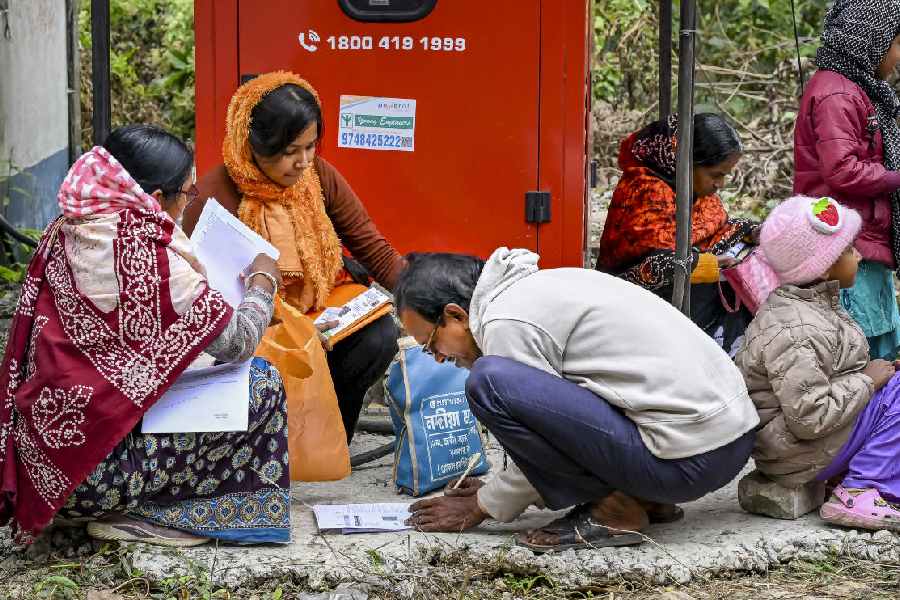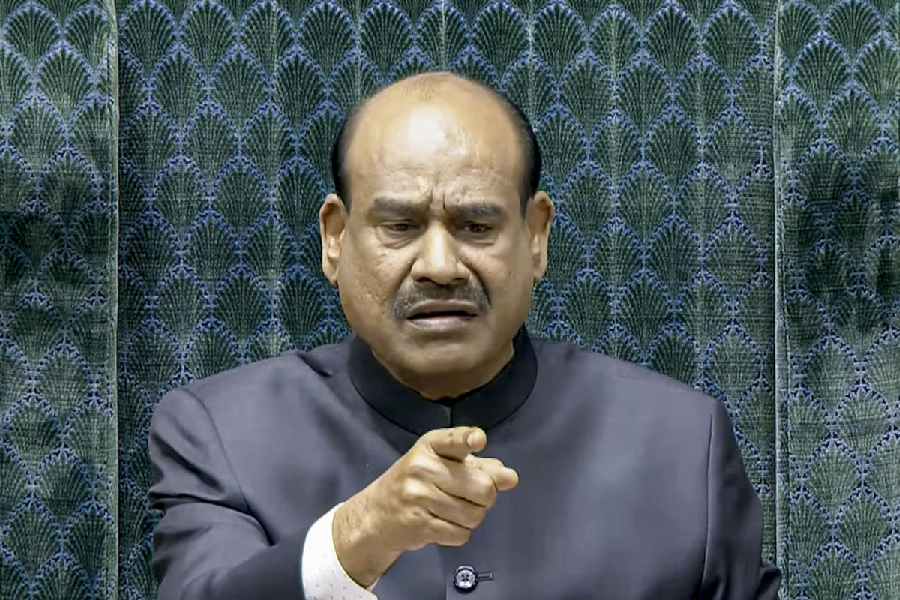 |
July 7: A car bomb today rammed into the Indian embassy’s gates in Kabul’s deadliest terror strike since the Taliban fell in 2001, killing at least 41 people including Delhi’s defence attache, a senior diplomat and two Indian guards.
The Taliban is the chief suspect in the bombing, which also injured 139 people, with Afghan authorities alleging a role by foreign agents in the region, a likely reference to Pakistan. Both Islamabad and the Taliban denied the charges.
Eyewitnesses said that around 8.30am (9.30 Indian time), just as a diplomatic vehicle was entering the embassy, an explosives-laden Toyota Corolla rammed the gate.
Defence attache Brig R.D. Mehta and counsellor V. Venkateswara Rao, who were in the car, were killed on the spot along with Indo-Tibetan Border Police guards Ajai Pathania and Roop Singh. Rao was flung over the roof.
An Afghan working at the embassy and seven local guards too were killed, and many Indians injured. Officials said ambassador Jayant Prasad was not in the embassy when the attack took place.
Queuing visa-seekers, shoppers across the street and security staff bore the brunt of the first direct terror strike on an Indian mission, which blew the embassy gates and outer walls off and badly damaged the buildings inside. Delhi, which was fearing an attack, had recently fortified the compound with large, dirt-filled blast walls of the sort used by the military, but they failed to withstand the blast.
Smouldering rubble covered the street where the wounded lay wailing for help amid blood, torn limbs, and a cloud of dust and smoke. “There was a loud bang. I saw cars with smashed windows, damaged shops and wounded and dead people lying scattered on the road,” said Danish Karokhil, a journalist.
| INDIANS DEAD |
 |
| Counsellor Vadapalli Venkateswara Rao |
 |
| Defence attache Brig Ravi Dutt Mehta Indo-Tibetan Border Police guards Ajai Pathania and Roop Singh (not in the picture) |
The impact shattered shop windows and broke the gates of the nearby Indonesian embassy, where five Afghan guards were killed and two diplomats wounded.
“The Taliban didn’t do this one,” spokesman Zabiullah Mujahid said. The group, however, is known to disown attacks if they primarily kill Afghan civilians.
Kabul’s interior ministry hinted at a Pakistani hand saying: “This attack was carried out in co-ordination and consultation with an active intelligence service in the region.”
Pakistan, where four blasts killed one and injured 50 in Karachi today, said it “condemns terrorism in all its forms”.
However, it gave the Indian high commission in Islamabad a few nervous moments, allowing some 70 Kashmiris to enter the diplomatic enclave and chant anti-India slogans outside the building. An Indian diplomat said Pakistan normally warns the mission in advance about any protests but did not do so today.
Pakistan is suspicious of the way India has invested crores to rebuild Afghanistan and pushed in thousands of engineers and workers to construct roads. It is also wary of India’s string of consulates in Kandahar, Jalalabad, Herat, and Mazar-i-Sharif.
The Taliban have frequently attacked Indian offices and projects. Delhi had been forced to close its Kabul embassy in 1996 when the Taliban seized power, but reopened it in 2001 after the regime’s ouster.
Manmohan Singh, in Japan to attend the G8 summit, spoke to Afghanistan President Hamid Karzai to condemn the “dastardly” bombing and affirm that Delhi would help rebuild the war-ravaged nation with “renewed commitment”.
Pranab Mukherjee and A.K. Antony, the foreign and defence ministers, met in Delhi and despatched a high-level team, headed by secretary (west) Nalin Surie, to Kabul to assess the “emergency” situation.
Shortly after the attack, a US military patrol fired on a car as it approached the embassy, wounding a woman and two men inside.
The bombing sent families rushing to search for loved ones. A woman ran out of a hospital screaming, weeping and hitting her face with both hands. “Oh my God! They are both dead,” she said of her children.










